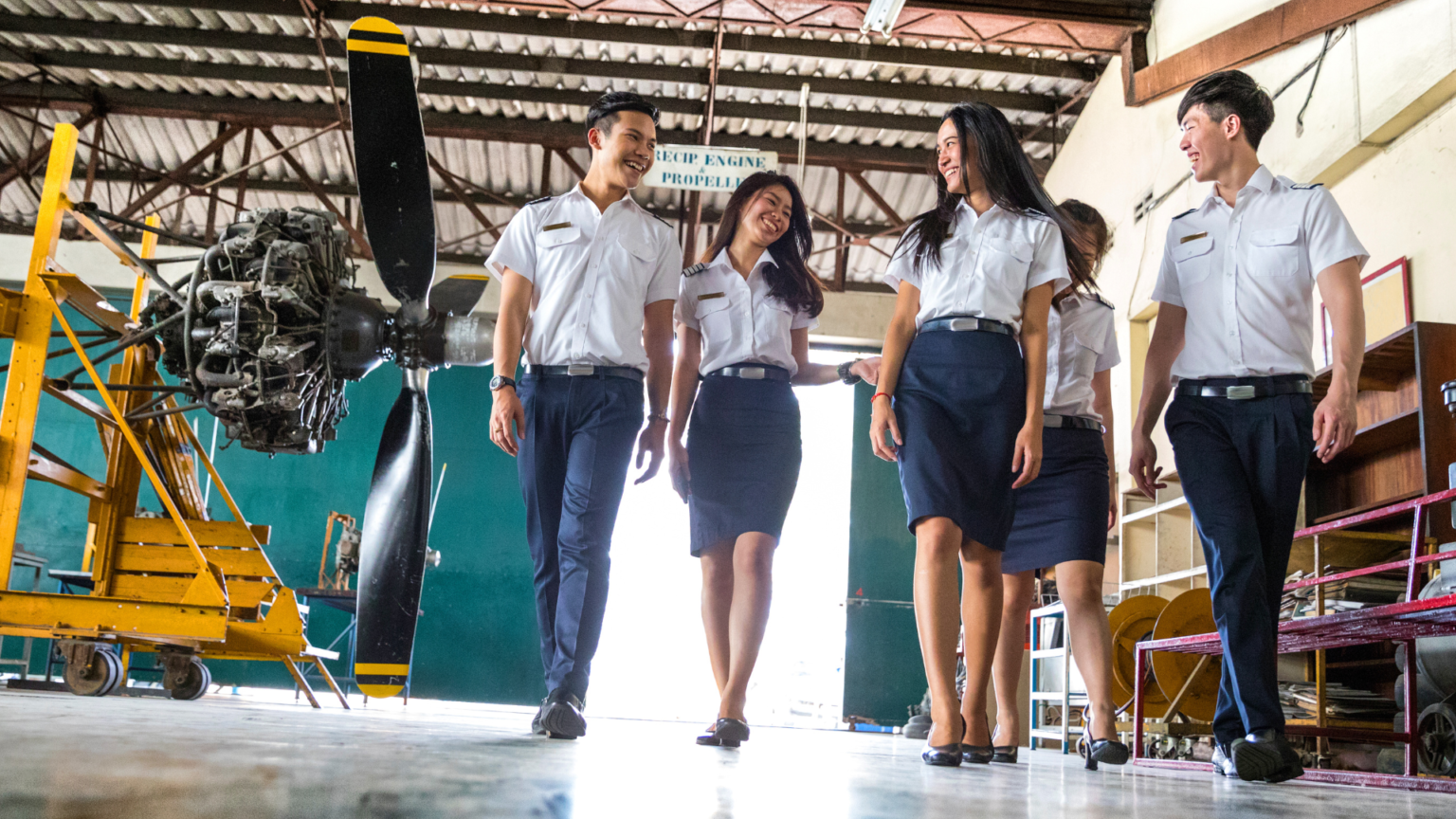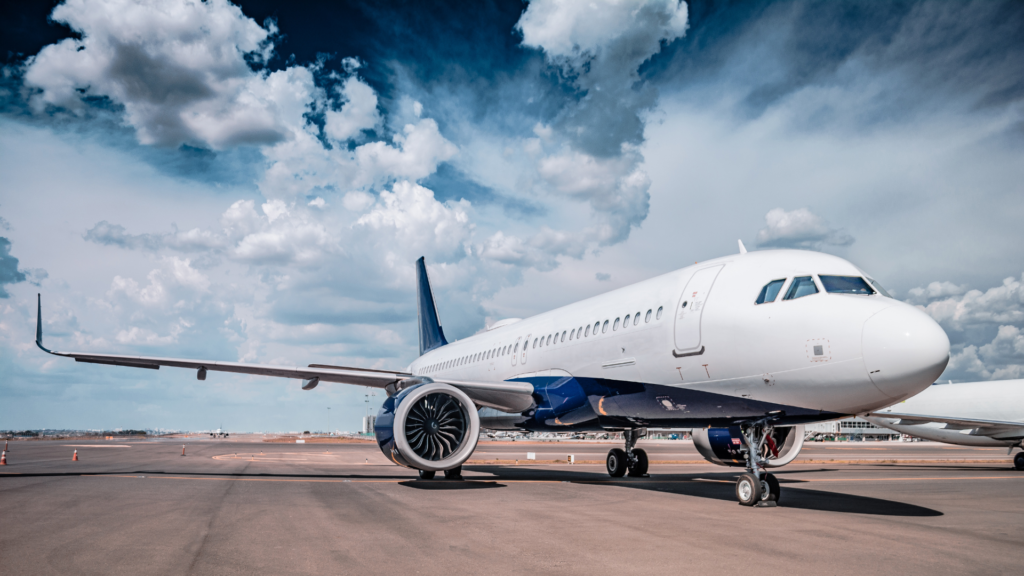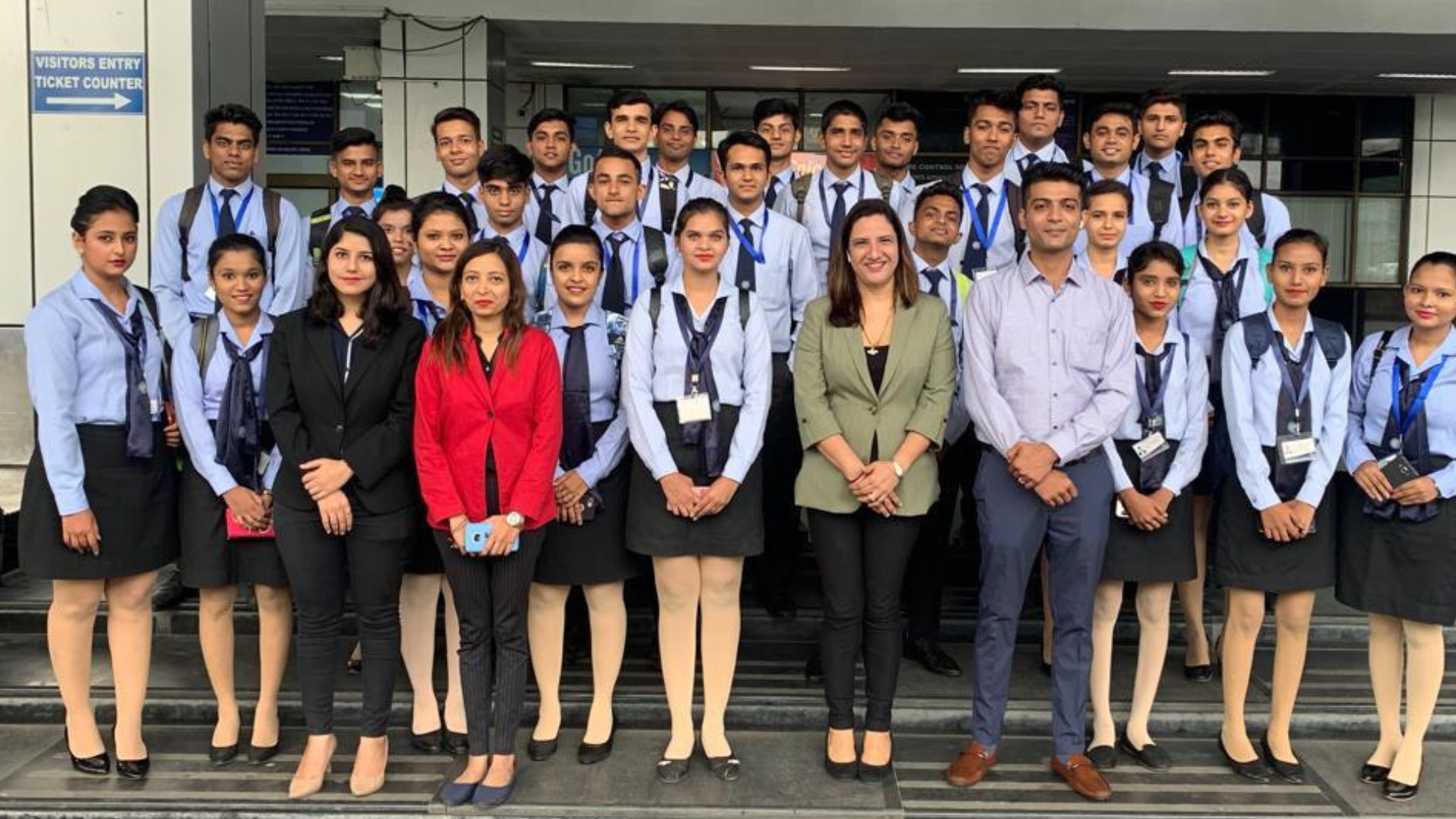
The aviation sector has always been a fascinating career choice that offers a unique combination of responsibility, excitement as well as a hint of glamour. But, as we move into 2024, we need to take a review of the elements that determine whether aviation is a viable choice for a career or not.
Let’s examine the main factors that affect the aviation industry as well as the tradeoffs to be considered when making career choices.
Future of the Aviation Industry:
The aviation industry in India has experienced significant growth in recent years, driven by various factors such as a burgeoning middle class, increased tourism, and government initiatives to open the sector to foreign investment.
Under the 2030 Agenda framework, the International Civil Aviation Organization (ICAO) has been designated as the custodian agency for the global indicator measuring Passenger and Freight Volumes by Mode of Transport. ICAO plays a crucial role in monitoring and providing data to assess the progress of states in building resilient infrastructure, promoting inclusive and sustainable industrialization, and fostering innovation.
The expansion of the air transport industry paints a promising picture for the future of aviation. In 2017, global airlines carried approximately 4.1 billion passengers and transported 56 million tonnes of freight through 37 million commercial flights. On a daily basis, airplanes move over 10 million passengers and goods worth around USD 18 billion.
These statistics underscore the substantial economic impact of aviation on the global economy. Aviation constitutes 3.5 percent of the world’s gross domestic product (GDP), amounting to 2.7 trillion US dollars, and has generated 65 million jobs worldwide.
As the sole rapid worldwide transportation network, aviation plays a pivotal role in driving economic growth, job creation, and facilitating international trade and tourism. Recognized by the international community as an essential enabler for achieving the UN Sustainable Development Goals, aviation is seen as a key player in fostering global business connectivity.
With the aviation sector experiencing rapid growth, the latest estimates project an average annual increase in demand for air transport of 4.3 percent over the next two decades. The trajectory suggests that aviation will continue to be a vital force in shaping the global economy and contributing to sustainable development goals.

Image source: https://www.icao.int/
If this growth path is achieved by 2036 the air transport industry will then contribute 15.5 million in direct jobs and $1.5 trillion of GDP to the world economy. Once the impacts of global tourism are taken into account, these numbers could rise to 97.8 million jobs and $5.7 trillion in GDP.
By the mid-2030s no fewer than 200,000 flights per day are expected to take off and land all over the world.
The Impact of the Aviation Industry:

The aviation industry has a significant impact on various aspects of society, including the economy, transportation, and the environment. Here are some key points about the impact of the aviation industry:
1.) Economic Impact: The aviation industry plays a crucial role in the global economy. It supports millions of jobs worldwide and contributes to economic growth. However, the COVID-19 pandemic had a severe financial impact on the aviation industry, leading to massive losses for airlines and other subsectors in 2020.
2.) Transportation and Mobility: Aviation advancements have transformed mobility and impacted development through state-of-the-art technology and innovative solutions. The aviation industry’s progress has had an impact across industries and modes of transport. Achieving sustainable mobility requires collaboration among all modes of transport to address inefficiencies and implement innovations. Technologies like artificial intelligence (AI) and big data have the potential to improve safety, efficiency, and sustainability in aviation.
3.) Environmental Impact: The aviation industry’s environmental impact is a topic of concern. While aviation accounts for about 2.5% of global CO2 emissions, its warming impact is larger due to the other gases and particulates it emits at high altitudes. These non-CO2 impacts, including nitrogen oxides and contrail clouds, can triple the climate impacts of aviation compared to CO2 alone. The height at which emissions are released contributes to the aviation industry’s environmental impact.
4.) Policy Responses: The COVID-19 pandemic and containment measures significantly reduced the demand for passenger air transport, threatening the viability of many firms in the air transport sector and the rest of the aviation industry. Governments and international organizations have implemented various support measures to mitigate the impact on the aviation sector and protect jobs.
5.) Safety and Efficiency: The International Air Transport Association (IATA) plays a crucial role in representing and serving airlines by advocating for global standards in safety, security, efficiency, and sustainability.
6.) Sustainable Development: The International Civil Aviation Organization (ICAO) is working towards enabling a coherent and harmonized global regulatory framework, liberalizing international air transport, and resolving infrastructure and airspace capacity constraints to support sustainable development.
Important Factors to Consider:
Job Opportunities: The aviation industry offers diverse career paths, including pilots, cabin crew, air traffic controllers, aircraft engineers, and aviation managers. However, it’s important to note that the demand for certain roles may fluctuate based on economic conditions and technological advancements. Staying updated with industry trends can help in making informed career decisions.
Job Security: While the aviation industry has faced challenges, such as the recent pandemic, it has shown resilience in bouncing back. However, it’s crucial to acknowledge the potential risks associated with economic downturns, geopolitical factors, and technological disruptions that may impact job security.
Salary and Benefits: Aviation careers often come with competitive salaries and attractive benefits, especially for highly skilled professionals. However, it’s important to recognize that the earning potential may vary based on factors such as experience, location, and job role.
Work-Life Balance: The aviation industry is known for its demanding schedules, which can affect work-life balance. Pilots and cabin crew, for instance, may have irregular working hours and be away from home frequently. Balancing personal commitments with work commitments should be carefully considered.
Technological Advancements: The aviation industry is witnessing rapid technological advancements, including the introduction of unmanned aerial vehicles (drones) and artificial intelligence. Adapting to these changes and continuously upgrading skills will be crucial for long-term career growth.
Choosing the Right Aviation Academy for your Carrer Path:
One of the fundamental steps toward a successful aviation career is selecting the right aviation academy. Aspiring pilots often find themselves grappling with choices, considering factors like the reputation of the institution, the quality of training, and the range of courses offered. In India, where aviation is booming, the search for the best aviation institute becomes crucial. Institutions like Panache Academy, with its presence in Nikol Ahmedabad, Shyamal Ahmedabad, Goa, Indore, and Vadodara, offer comprehensive aviation courses that cater to various career paths within the industry.
Join us today for an exciting journey into the world of aviation with 100% placements job offer.

Conclusion:
In conclusion, the aviation industry offers a range of exciting career opportunities with promising job prospects and competitive salaries. Aspiring aviation professionals should carefully consider the various factors discussed to make informed decisions about pursuing a career in aviation.
FAQs
The average salary range for aviation professionals can vary depending on factors such as job role, experience, location, and industry.
The average salary offered to aviation graduates can range from 1.5 to 35 lakhs per annum in India, depending on proficiency, expertise, performance, training, and experience
It’s important to note that these figures are general estimates and can vary based on individual circumstances and market conditions. For more specific and up-to-date information on salary ranges for aviation professionals, it is advisable to research job listings, industry reports, and consult with relevant professional organizations.
Working in aviation comes with challenges such as safety and regulatory compliance, but the rewards can be significant, including the opportunity to work with advanced technology and travel to different locations
Answer: Commercial Pilots, Flight Attendants (Air Hostesses), Air Traffic Controllers, Airport Managers, and Aerospace Engineers are the aviation professions in India with the highest salaries
The civil aviation sector will require more than 260,000 additional pilots over the next ten years, indicating a growing demand for skilled professionals in the industry

